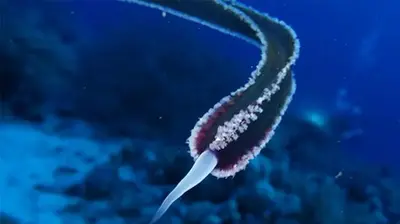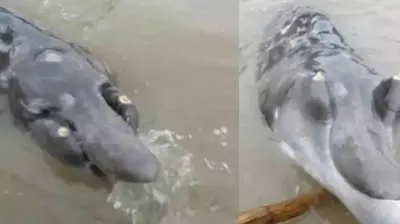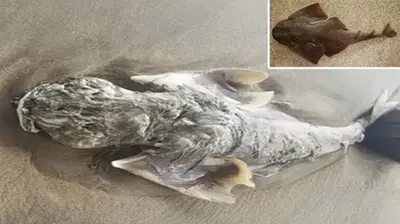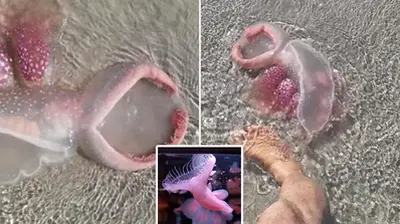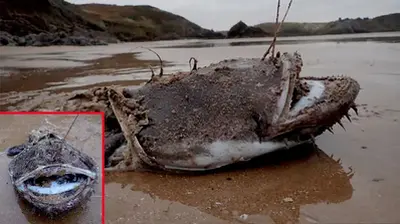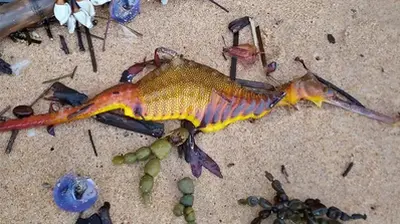Weird Animals
Warning As ‘deadly’ Sea Creatures Blown Onto Uk Beaches By Strong Winds
Warnings have been issued by the Royal National Lifeboat Institution after ‘deadly’ sea creatures washed up on beaches in the UK.
The ‘strange’ looking Portuguese Man o’War have been spotted in Preesall and Ainsadale, in Lancashire and Southport respectively, over the last 24 hours.
Professionals said that the creatures are “at the mercy of the wind” and are “being blown up the Irish Sea.”
Experts added that although jellyfish of this kind are rarely deadly, dogs and children should stay away because of their “nasty sting.”
Becky Clarke, from Preesall in Lancashire, shared a picture of the blue bottle jellyfish on the Knott End and Preesall Community Facebook page stating: “I found a couple of Portuguese man o war on the beach at Preesall this morning.”

One person responded: “They are covered in venom and can cause excruciating pain! Best to keep away from them!”
Another said: “Normally find these down south. Nasty sting to them too.”
The ‘alien’ looking creatures can have tentacles as long as 100 ft and are potentially capable of killing a human – although this rarely happens.
Karl Lee, 47, also came across the ‘dangerous’ creature on Sunday while walking along Ainsdale beach with his wife.
He told the ECHO : “[It was] very strange at first I thought it was a balloon until I had a closer look and identified it using an app and realised what it was and how dangerous they are and looked up that they have been washing up along the coast from Cornwall to Cumbria.”
Karl took to Facebook to warn those who may be walking their dogs on the beach.
In the post, he said: “Watch out on Ainsdale beach with your dogs found a Portuguese Man of war.”
West Kirby RNLI earlier tweeted: “This was found today on Caldy Beach. It is a Portuguese Man O’War. If you see one, DO NOT TOUCH, They give a nasty sting, even when dead.”
Georgia de Jong Cleyndert, a marine conservation officer for the Wildlife Trusts told the ECHO due to climate change we could be seeing more of these creatures on our shores.

She said: “We also received reports of Portuguese Man O’ War washing up near Preesall, Lancashire over the weekend. It seems these open ocean drifters are slowly being blown up the Irish Sea.
“These jellyfish-like Animals normally live in the open seas but the strong and persistent winds and autumnal storms that we have been experiencing are causing them to be washed ashore.
“Sightings of Portuguese Man-o-War ( Physalia physalis ) occur every few years in the UK but are rarer this far north in the Irish Sea, although sightings are increasing.
“They can’t swim and are at the mercy of the winds – which is why they often end up washed ashore after big storms.
“They have blue tentacles that hang below the surface, stretching over 10 m in length, which have thousands of stinging cells that deliver venom to paralyse and kill their prey (small fish and crustaceans).
“Though it is rarely fatal for humans, their sting can pack a painful punch. They can still sting even when dead so keep children and dogs away.
“With a changing climate and the prospect of more stormy weather, it is also likely that there will be an increase in the frequency of occurrence of strandings of these beautiful open ocean drifters.”
-
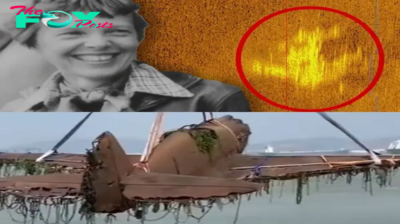
 Weird Animals4m ago
Weird Animals4m agonht.Breaking: Amelia Earhart’s lost aircraft artifacts discovered after 70 years.
-
Weird Animals4m ago
“Pangolins: Armored Guardians of the Wild”
-

 Weird Animals4m ago
Weird Animals4m agonht.Breaking news: A mysterious triangular UFO glides across the sky, surprising observers. Experts are studying it.
-

 Weird Animals4m ago
Weird Animals4m agonht.Concorde Crash and Air France Flight 4590: An Extraterrestrial Attack?
-

 Weird Animals4m ago
Weird Animals4m ago.Captivating Wildlife: Stunning Images Show Young Snakes Awaiting Mother’s Return..D
-

 Weird Animals4m ago
Weird Animals4m ago.Heroic Rescue: Elderly Turtle Saved from Mysterious Creature Attached to Its Shell..D
-
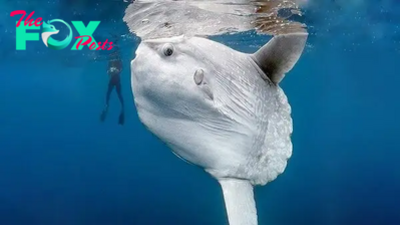
 Weird Animals4m ago
Weird Animals4m ago.Deep Sea Wonder: 22ft Circular White Fish Charms Diver, Becomes Social Media Sensation..D
-

 Weird Animals4m ago
Weird Animals4m agonht.The astonishing discovery of an alien mummy, perfectly preserved as if alive, shocked everyone.
